Resilience & Growth: The EPIC Experience
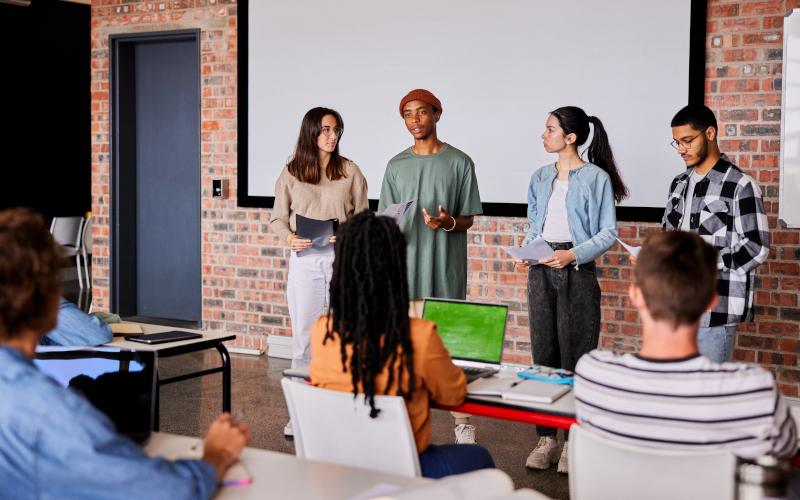
Program Description:
Resilience & Growth: The EPIC Experience offers students an exciting opportunity to explore the intersection of personal growth, storytelling, and social science research. Over the course of this immersive program, students will learn how to reflect on and share their challenges—whether related to academics, peer relationships, family, or life in general—while discovering how these experiences can be leveraged positively.
Under the mentorship of researchers from The Education for Persistence and Innovation Center (EPIC), students will create a multimedia narrative of their own struggles and triumphs. By developing a deeper understanding of their personal journeys and the research methods used to explore human behavior, students will gain critical insight into how they can transform setbacks into successes.
Dates: July 7 - 25, 2025
Times:
- 3 synchronous meetings per week full group
- 1 synchronous meeting per week in small groups: Timing depends upon group schedule
- Individual synchronous meetings
Format: Online Modules with Live Zoom Sessions
Price: $3,600
Note: Students will need to first apply and once accepted, they will receive a link to register and pay. Also there are no application fees.
For more information, questions or to register: Email tcacademy@tc.columbia.edu
Faculty
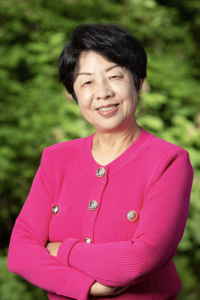
Xiaodong Lin-Sielger, Ph.D.
Cleveland E. Dodge Professorship in Cognitive Studies
Dr. Xiaodong Lin is a Professor of Cognitive Science in Education and the founding Director of Education for Persistence and Innovation Center (EPIC), at Teachers College, Columbia University. Her research focuses on how educators can motivate students to succeed despite facing obstacles in their school work and personal life.
A theme that runs throughout her research is the importance of learning about other people’s struggle with failures and the impact this learning has on a student’s confidence and future achievements. For example, Professor Lin found that incorporating “celebrity” stories of failure to success into the STEM curriculum can help improve a student’s ability to tackle their own struggles in life. In her 2016 study (Lin-Siegler, Ahn, Chen, Fang, & Luna-Lucero, 2016), she found that making explicit the struggles famous scientists experienced prior to success enhanced students’ ability to deal with challenging STEM learning tasks. This study was press released by the American Psychological Association, and has since then been published by over 25 news media, including NPR Morning News Edition, CBS News, PBS Kids, PBS SciTech program, Science, Atlantic Quartz, BBC News, News India, China’s People Daily, etc.
Professor Lin has earned many academic awards throughout her career, including Career Achievement Award and Distinguished Research Award by the American Education Research Association (AERA). She was also named a Carnegie Scholar by the Carnegie Corporation of New York in 2003. Recently, Professor Lin was elected to serve on the Education Advisory Board of the Organization for Economic Co-operation and Development (OECD) and has made important contributions to the Education 2030 Initiative. Professor Lin has been named Cleveland E. Dodge Professor of Cognitive Science in Education at Teachers College for her profound contributions to failure studies and their applications across the fields of education, psychology, and health.
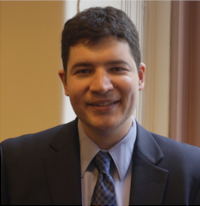
Benjamin J. Lovett, Ph.D.
Dr. Ben Lovett is a Professor of Psychology and Education in the School Psychology program at Teachers College, Columbia University, where he teaches courses on psychological assessment, cognition and emotion, and the history of psychology, among others. His research focuses on (a) the diagnostic assessment of learning and attention problems, (b) the provision of disability accommodations, and (c) the nature and management of test anxiety. He has over 100 publications on these and related topics, including 4 books. He is also a licensed psychologist in New York State and has served as a consultant to schools and testing agencies.
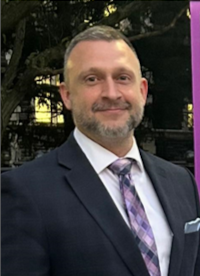
Sean Dolcy
Sean Dolcy is a principal of a STEM high school in NYC and is also a doctoral student at Teachers College, Columbia University studying cognitive science in education. His background includes mechanical engineering, materials science, math education and school leadership. In addition he has completed an MA in Cognitive Science in Education from Teachers College, Columbia University.
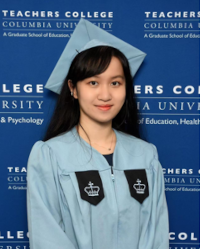
Keying Wang
Keying received her Bachelor of Arts in Psychology from Occidental College and her Master of Arts in Cognitive Science in Education from Teachers College, Columbia University. She is currently pursuing a Ph.D. in Cognitive Science in Education at the same institution. Her interests include the impact of emotion on cognition and motivation, particularly in the context of overcoming challenges.
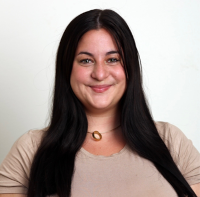
Gabrielle Lamanno
Gabby earned her Master of Arts in Developmental Psychology from Teachers College, Columbia University, and is currently pursuing a Ph.D. in Developmental Psychology at the City University of New York Graduate Center. She serves as an Adjunct Professor and a Statistical Methods in Psychological Research Lab Instructor at CUNY Brooklyn College. Her research focuses on how motivation, opportunity, adversity, and life events shape individuals' commitment to personal goals and influence their developmental trajectory.
Learning Objectives
- Learn to Share Your Failures: Explore how to talk about your setbacks in a way that helps you grow and teaches others. The goal is to connect with the events and understand your role in them. This means expressing your emotions and how your thoughts changed. You will learn to tell impactful stories about your own journeys of turning setbacks to success.
- Develop Self-Knowledge by Reflecting on Your Reactions to Failure: Dive into the process of finding meaning in both yourself and the events that unfold. This introspection involves making sense of your experiences, leading to a deeper understanding of yourself and your journey. Good storytelling should help one achieve this goal.
- Introduce Fundamentals of Social Science Research: Dive into the essentials of social science research methods and discoveries of human behaviors, emotions and thinking. You will learn by analyzing research papers, understanding what problems researchers study, how they approach it, and what it means. Plus, we'll have a lecture on different research methods, followed by a workshop where you'll craft your research idea. This knowledge will help one think critically about the society and events in your life.
Program Projects
Current outline of the program will consist of:
Narratives of Failure: Reflecting & Revising
We invite you to share two distinct narratives of failure throughout the program:
-
Before the Program
-
Revised Story After Viewing Champions’ Stories and Analyzing Peer Experiences
This narrative should reflect on the experience of failure and journey taken from start to finish including your emotional response, your role in the situation, the actions you took (or did not take) to turn it around, and key insight(s) about yourself that you discovered through the process.
Essay on Preparing for Future Failures
At the beginning and end of the program, you will write an essay outlining potential challenges you may face, your predicted reactions, three strategies to address them, and possible outcomes based on past experiences and research.
Interviews about Others’ Failure Stories
You will conduct two interviews (15-minute max for each) - One with a parent and the other with a peer or other individuals—exploring their personal failure stories, how they responded, and their feelings about the experience. You’ll submit interview recordings, transcripts, analysis using provided rubrics, and suggestions for improving future questions.
Final Project & Presentation
Create a 2-minute video based on your revised failure story, presenting one insight on turning failures into success, supported by research, personal experiences, or observations from others' stories.
Evaluation
We will assess each student’s performance at TWO points during the program. If a student does not meet the required standards during these evaluations, we may arrange conversations with the student, meeting with their parents, or potentially remove the student from the program.
Additional Opportunities
We will select a group of students to continue being involved with EPIC’s work and website design. Exceptional students and their final projects will also be selected to post on EPIC website with the student and parent’s permission.
Frequently Asked Questions:
Who is eligible for this program?
We welcome high school students in grades 9-11 around the world to apply for the program. The admission is not based on academic merits, but on your interests and commitment to improving yourselves.
When and how can I apply:
Enrollment is currently open and we encourage you to apply as soon as possible due to the limited spots in our program. You can apply via the application form.
How much is the application fee?
There is no application fee.
How long is the program, and what is the cost?
The program runs for 3 weeks, from July 7 - 25, 2025 and the cost of the program is $3,600.
Who will be running the program?
This program is organized and led under the mentorship of key individuals from The Education for Persistence and Innovation Center (EPIC), and guest speakers from the diverse subfields in Psychology.
Is the program fully virtual?
Yes, the program is fully virtual consisting of online modules with live Zoom sessions.
What benefits do I get from this program?
Upon completion of the program, students will receive an electronic certificate of participation. Students will also learn how to reflect on and share their challenges—whether related to academics, peer relationships, family, or life in general—while discovering how these experiences can be leveraged positively.
What is the typical workload of the program?
Participants will be expected to work for a total of 30 hours on various projects.
Does my parent/guardian need to approve my application?
Yes, your parents/guardians need to sign the program consent forms before you can officially start the program. If you decide to join the program, we need one of your parents/guardians to sign a consent form.